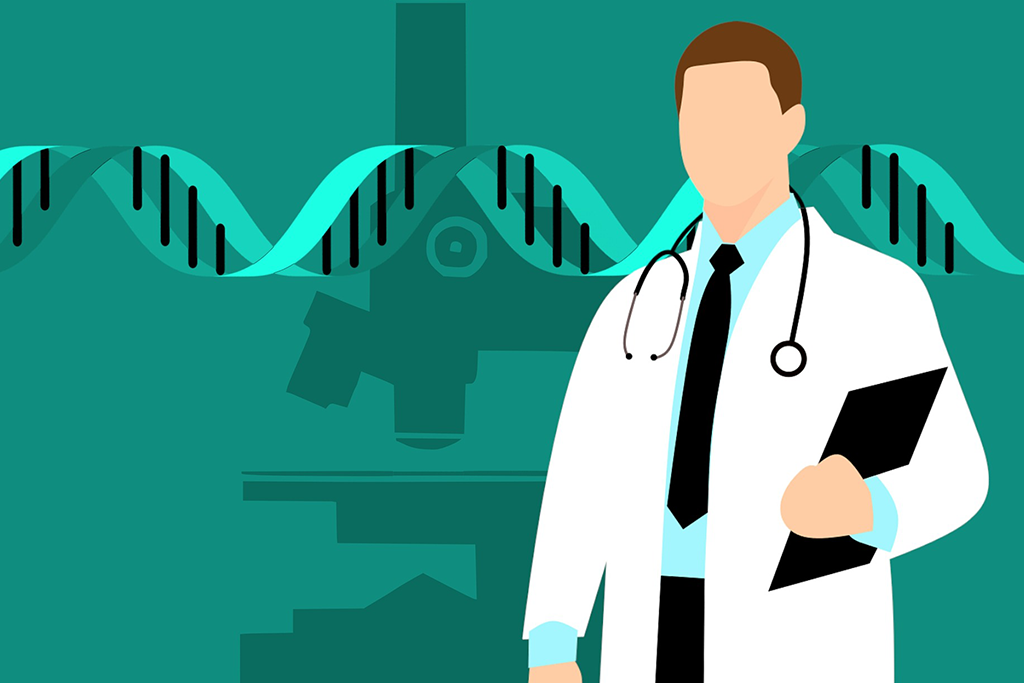Written by Myles Spar
Posted on: September 4, 2019
Share This

Strike up a conversation with just about anybody these days and you may end up hearing about their ancestry. One minute you’re chatting about baseball over beers, and the next your buddy is telling you about how a genetic test showed he’s mostly Irish (or Welsh, or African, or Scandinavian… you get the idea). People are even testing the DNA of their dogs!
The first genetic tests made directly available to consumers were actually released in 1996, but it’s only been in the past few years that these at-home tests have really taken off—to put it mildly.
Over 26 million people have purchased consumer genetic tests, with more people buying them in 2018 than in every other year combined. Experts believe the boom in genetic testing sales has been spurred largely by a ballooning interest in genealogy, which is now the second most visited website category on the internet (behind, you guessed it, pornography).
Although ancestry tests are the most popular direct-to-consumer genetic tests, interest in at-home genetic health tests is growing as well, and some companies are offering bundled ancestry and health test packages, one of which was a top Black Friday seller on Amazon in 2017.
While it’s undeniable that genetic testing can provide people with valuable information about their health, there are risks involved, particularly when consumers are ordering online tests without the guidance of a practitioner who can help interpret their results within a broader medical context. Here are some of the pros and cons of genetic testing.
Pro: Genetic testing allows people to be proactive about their own health
While learning that you have a genetic mutation may be scary, it can provide you with an opportunity to be proactive about reducing your risk of illness. In some circumstances, you may even be able to alter your genes through lifestyle choices like diet, exercise, and stress management.
Scientists working in the field of epigenetics, the study of how chemical and environmental factors impact our genetic health, have discovered many ways we can influence our genes. For example, compounds called polyphenols that are found in green tea, broccoli, turmeric, and other dietary sources have been shown to have an epigenetic impact on whether certain cancers start or progress in the body.
In some cases, genetic testing may reveal predisposition for a disease that, when caught before it develops, can be prevented or slowed through early treatment. When you’re aware of your risks, you can work with medical professionals to devise a plan of attack. I use advanced genetic testing in my Tack180 optimal health program because it helps me to know what personalized recommendations to make regarding further testing and informs the overall prevention strategy. That said, most of the at-home tests just aren’t as accurate or comprehensive as the ones available to healthcare professionals that I use in my practice.
Con: At-home kits may provide inaccurate or confusing results
Genetic tests offered by companies like 23andMe only analyze a small segment of your DNA. So while they look at genes associated with diseases like cancer and Alzheimer’s, testing negative for these genetic variants doesn’t mean you won’t get sick—it just means the variants didn’t show up in the tiny DNA sample the company tested.
The misleading results of at-home genetic tests are especially concerning when consumers receive them without any professional guidance or counseling. Not only can a qualified clinician help interpret your test results, but they can also help you decide what to do about them. There may be steps you can take to mitigate genetic risk, but you won’t necessarily know what those steps are if you don’t run your test results past an informed expert.
Pro: Accessibility to health information is improved by at-home tests
Before the advent of at-home genetic tests, people’s access to information about their own genetic makeup was pretty limited. (Read: only wealthy people could afford it.) Now that direct-to-consumer DNA tests are widely available, genetic information that was once largely inaccessible has been democratized, allowing more people than ever to be proactive about their health.
Con: Privacy may be an issue
Companies that offer at-home genetic testing take security seriously, but they can’t guarantee that your private information won’t be hacked. And there’s only one law in place, the Genetic Information Nondiscrimination Act (GINA), that specifically addresses the issue of genetic privacy. While GINA prevents employers and health insurance companies from accessing your genetic information, some privacy experts worry that the law is too narrow.
Using information to help you win
Genetic testing is remarkably promising, but it’s not without risks. To learn more about this and other cutting-edge health tech, sign up for my newsletter: https://drspar.com/. And to determine what your problem areas are so you know where to start with health improvements, take my Optimal Men’s Health quiz:

About Myles Spar, MD
Myles Spar, MD, MPH is board-certified in Internal Medicine and in Integrative Medicine. As a clinician, teacher and researcher on faculty of two major medical centers, he has led the charge for a more proactive, holistic and personalized approach to care that focuses on cutting edge technology and preventative care. Dr. Spar has traveled with the NBA, presented a TEDx Talk, appeared on Dr. Oz, and been featured in publications such as the Men’s Journal and the Los Angeles Times.









